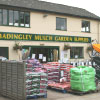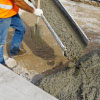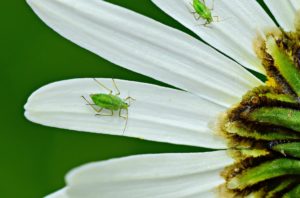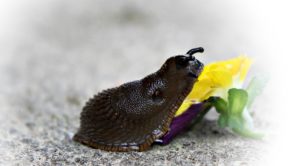Top Tips on Controlling Unwanted Pests in Your Garden
One of the biggest banes of any gardener’s life is keeping unwanted pests under control, particularly at this time of year when the first green shoots are beginning to appear and young plants are at their most vulnerable.
Here bark mulch suppliers Madingley Mulch, who provide a range of outdoor gardening supplies to customers in and around Cambridge, give advice on how to deal with some of the most common pests found in UK gardens.
Aphids
Aphids are one of the most destructive insects. Not only do they suck precious plant sap from stems and leaves, they also excrete honeydew on leaves, which promotes fungus.
The best thing you can do is to encourage any ladybirds in the garden because they are the aphids’ natural predator. Aphids can also be removed from plant stems with a well-directed stream of water from a garden hose, or picked off with garden gloves. They can be killed by dropping them into a bucket of soapy water (along with any affected plant growth).
Now is the right time of year to take action before any aphid infestation has fully taken hold. This will protect growing plant shoots when they are at their most vulnerable.
Caterpillars
Winter moth caterpillars are among the most destructive pests. Females lay eggs between November and April on ornamental and fruit trees, as well as shrubs. When the eggs subsequently hatch out, leaves, fruits and blossom are all likely to be damaged.
It is important to be aware, however, that they are a food source for birds, beetles and hedgehogs. Therefore, if you do need to do something about them, try a grease band or tree barrier glue which will discourage the females from laying eggs.
Mice and Rats
The best way to keep rodemts out of your garden is to keep it neat and tidy, so there’s nowhere for them to hide. Check under garden sheds and decking where they might be hiding too. It is also important not leave any food scraps around (e.g. bird tables), which they could feed on.
Rats can’t survive without a water source, therefore they can be deterred by putting mesh over ponds, covers over drains, and making sure you don’t have any dripping taps outside. Mice are generally shyer than rats, but can still attack smaller plants or seedlings, so cover pots up with wire mesh.
At Madingley Mulch, we also sell traps, poison and bait to deal with any size of infestation.
Slugs and Snails
These can do an enormous amount of damage, particularly to vegetables like lettuce, sweet peas and hostas. They can also eat holes in leaves, flowers, stems and bulbs.
Some herbs like chives and mint, plus other species like fennel and foxgloves actually deter them, so planting these next to vulnerable plants will provide some protection. These types of pests can also be removed by hand, or by more sophisticated methods such as beer traps (they can’t resist these) or copper tape, which can give slugs an electric shock.
In addition, you could consider installing a water feature such as a pond, because frogs and newts are natural predators of slugs and snails.
Don’t Forget to Mulch
Organic mulches, such as those made out of bark chips, can help deter some pests as well as suffocate weeds. However, they can also act as a home for others which can be harmful if they are allowed to get out of control.
So don’t lay your mulch down too thickly (3 to 4 ins should be deep enough) and make sure it’s replaced regularly. Also don’t lay your mulch down too close to your home, and leave the plant stems clear.
At Madingley Mulch we supply a wide range of mulches (including bark mulch), soil conditioners and composts to customers from our base near Cambridge. These include Denise’s Delight, an exclusive mix of Black Fen soil, manure and other plant nutrients.
Ask the Experts
It is important to remember that every pest should have its own predator, so by artificial intervention you could be upsetting the delicate balance of nature in your garden. For example, slugs and snails can act as soil conditioners, helping to break it down. Also pesticides can cause collateral damage to other insects and plants, even if that wasn’t what you originally intended.
If you need help you can talk to our friendly, experienced staff about your pest problem and we will be happy to advise you. We stock a range of pest control products as well as weedkillers. If you would like to know more, visit our online shop or call us on 01954 212144.
For larger orders, our current timescale from order to delivery is around two weeks. We are sorry for the inconvenience caused by any delays. We are trying to increase our fleet size on a temporary basis to assist our delivery capacity. You will be contacted by our shop staff the day before your delivery.
Back to blog





